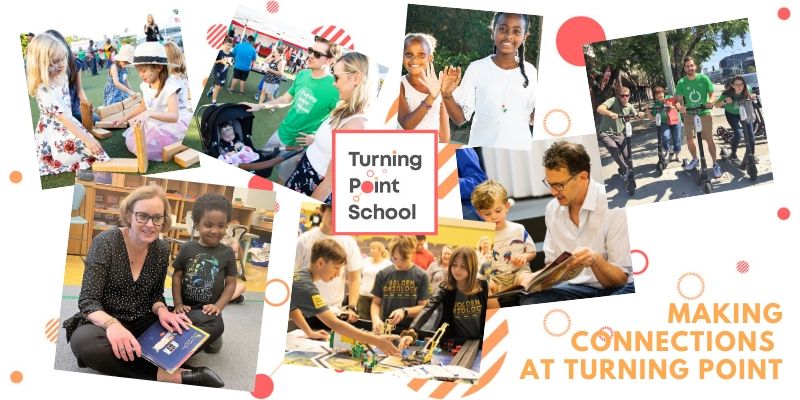 With Thanksgiving and the December holidays approaching, our thoughts turn to others: what gifts to purchase, what food to prepare, what travel plans to make. We create lists with seemingly infinite boxes to check off, and we rearrange our already busy schedules to fit in these extra tasks. And while people are at the center of these efforts, our preparations can feel alienating and depersonalized because chasing deadlines and checking boxes doesn’t feel like a great way to honor those who are special to us all year long.
With Thanksgiving and the December holidays approaching, our thoughts turn to others: what gifts to purchase, what food to prepare, what travel plans to make. We create lists with seemingly infinite boxes to check off, and we rearrange our already busy schedules to fit in these extra tasks. And while people are at the center of these efforts, our preparations can feel alienating and depersonalized because chasing deadlines and checking boxes doesn’t feel like a great way to honor those who are special to us all year long.
Remember, there is a phenomenon called “hedonic adaptation” (also known as the hedonic treadmill), which describes the way we become habituated to changes in our lives. Studies show that people who come into a windfall are no happier than those who don’t. Receiving gifts make us happy in the short term, but we fall back to a “happiness baseline” soon afterward.
Think about how excited our children are to open presents, but then seem utterly uninterested in playing with their gifts a few days after a birthday or holiday. Watching our children’s interest wane can feel like such a let-down, especially when we have stoically slogged through those deadlines and checkboxes to ensure our children have the “perfect” gift. If, as a parent, you haven’t had a moment on a gift-giving holiday where you wanted to shout, “Don’t you know how much I suffered for that gift?!” then either you’re doing everything right, or you’re too exhausted to notice.
I am always struck by the irony of feeling frustrated and resentful at the demands surrounding holidays that are about love and appreciation. The truth is, as humans, we are really good at making flawed assumptions about our futures and are really bad at predicting what will actually make us happy. Therefore, we often don’t consider opportunities that will inspire true contentment and fulfillment, like spending time with loved ones, and instead invest in things that look appealing at first but won’t move our happiness needle in an enduring way.
Knowing this, we can choose during these months to take time to understand where the barriers and challenges to real enjoyment exist, and then align our choices with happiness instead of suffering. I urge us to bring people back to the heart of these opportunities for gratitude, and to celebrate the lights that shine all year round, especially during our darkest days.
Let’s focus on love and how our children best experience it. Let’s honor awe and help our children develop reverence for the unknowable. Let’s put positive connection as our North Star to help us return to genuine gratitude as our guiding principle.
As we approach the holiday season (which, by the way, is in part manufactured by retailers to create anxiety so we will buy more things to convince ourselves we are good enough gift-givers), let’s recognize and acknowledge the stress and then try to replace it with positive connections. Remember that we must put on the oxygen masks and take care of ourselves first in order to be the best we can for others. Children benefit more profoundly from consistent, frequent small moments of positive connection than they do from big gestures.
Here are some examples of positive connections you can foster at any time of the year, and that can serve as an antidote to stress and accumulating “stuff” at the holidays:
- Real-time encounters: face-to-face, and with shared eye contact. These moments allow momentary love to emerge, so find moments each day when you can jointly experience something with your child that is fun or silly or comforting. Touch, eye contact, and sharing—or tracking—each other’s emotions are the key to the sensory connections that promote positive connection. This resonance dramatically decreases when mediated by technology. The more you can put your phone away and focus on your child or other loved ones, the better.
- Be open to the passions your children have, even if (especially if!) you do not share them. Sports, unicorns, robotics, ceramics—enjoying our children’s enjoyment allows more profound connections with them. I have learned more about basketball than I ever wanted to know because my son’s singular passion is basketball, but I love celebrating—and this year, lamenting—the stats of the Golden State Warriors, our favorite team.
- Model warm connections, even if they are one-time encounters, for your children. These moments demonstrate to our children how important it is to connect and to attune to others in the right moment, in situations that feel safe and involve direct human interaction.
- Laughter and play are crucial to well-being. Instead of running around buying stuff (or clicking stuff into online carts), be intentional about opportunities to laugh and to play. Get out in nature where we can connect with awe and curiosity, which incidentally promotes more prosocial feelings and allow us to get along with others more consequentially.
Of course, some managed expectations about holiday traditions and routines are unavoidable, and not entirely unpleasant (apple pie, anyone?). But I hope you can balance the obligations of the season with time to be outside, to laugh and play, to enjoy each other’s pursuits, and to connect in uncomplicated, human ways. In the end, we can choose to reject what doesn’t serve us by underscoring the simple, profound moments—for our children and for ourselves.
Here’s to a genuinely happy holiday season.
Warmly,
Laura
Laura Konigsberg
Head of School
lkonigsberg@turningpointschool.org


































